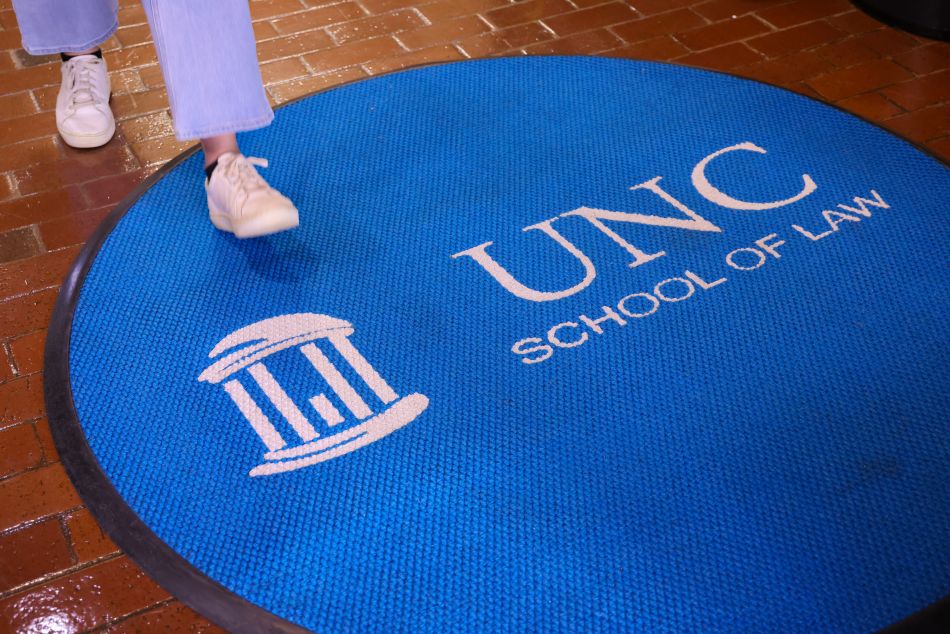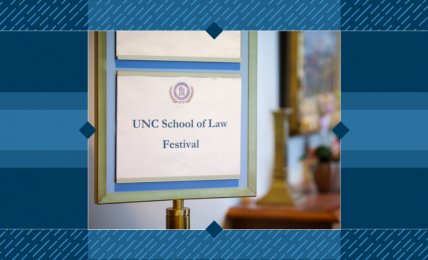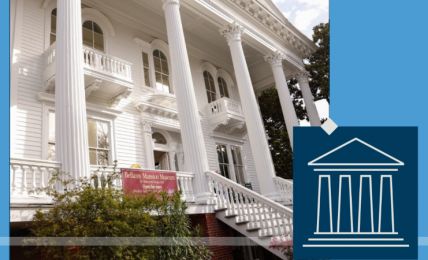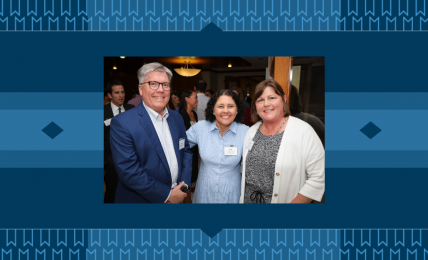
James Jolley ’14 came to UNC School of Law eager to do pro bono work. As a former high school teacher, he was excited to enroll in Carolina Law but found it hard to leave the classroom and the opportunity to positively impact students’ lives each day. “Pro bono was an important bridge for me, allowing me to still be directly involved in meeting specific needs in the community,” said Jolley. He participated in pro bono projects as a first-year law student and was on the Pro Bono Student Board during his second and third year, serving as the board’s student director in his third year.
Jennifer Hall ’09 first encountered pro bono work as a law student participating in a winter break project through the UNC Center for Civil Rights. Carolina Law students and supervising attorneys led research and data analysis work to assist underserved, historically Black communities in Moore County, North Carolina, where municipalities weren’t providing water and sewer services. “The project really made an impression on me, and then as I moved into practice, I tried to keep that service mindset.”
Today both attorneys lead pro bono efforts at their Raleigh firms – Hall as a commercial real estate attorney at Wyrick Robbins and Jolley as a corporate partner at Smith Anderson. Both have also remained engaged with Carolina Law and served on the School’s Pro Bono Alumni Board.
The Carolina Law pro bono program was launched 28 years ago and has become a significant part of legal education for Carolina Law students. Although pro bono work is completely voluntary, 90% of the graduating class in 2025 had completed at least one pro bono project.
The pro bono program includes a diverse mix of service opportunities. Students who feel like they don’t have time can still participate in bite-size opportunities like single-day clinics or remote projects over breaks. There are also many in-depth pro bono opportunities, including ongoing work assisting survivors of domestic violence, semester-long work supporting North Carolinians in need of expunctions, and pro bono trips.
Central to it all is the Pro Bono Student Board. The board is completely student-run and composed of 13 members, each focusing on a different aspect of Carolina Law’s pro bono program. The board works closely with Meghan Moran ’19, Carolina Law’s director of pro bono initiatives, on planning pro bono trips, coordinating with community partners and attorneys, engaging student organizations and more.
Jolley served as a supervising attorney on the school’s pro bono trip during fall break in 2024. He also handled many of the trip’s logistics and recruited six attorneys (most of whom are Carolina Law alumni) from Smith Anderson to supervise students in providing pro bono services to small businesses in need in the Wilmington area. The work was done in partnership with the Institute for Innovation and a small business incubator in Wilmington called Channel.
“Pro bono projects are an amazing way for law students and young attorneys to get practical experience that they otherwise wouldn’t get until later in their career,” said Hall. “This is especially true for litigation. One of my first depositions was in a pro bono case, and if I’d been working on that case in a paid role with a firm, they likely wouldn’t have put me in that position. But you get to be much more hands-on as a junior attorney with pro bono work.”
Jolley’s work on the Wilmington trip created a blueprint of sorts that allows other leaders to step in and replicate the process as they plan future pro bono trips.
Hall will be leading a pro bono trip to Sylva, North Carolina over fall break this year. A team of supervising attorneys from Wyrick Robbins will work with Carolina Law students to provide pro bono legal services to small businesses who were negatively impacted by Hurricane Helene. The project is in partnership with the Institute for Innovation and NC Growth. Sylva was selected as the site for the work, in hopes that its central location in Western North Carolina will allow the team to serve the greatest number of businesses throughout the region as they navigate through the Hurricane Helene recovery effort.
Student engagement with pro bono work often sparks a lasting commitment to pro bono as practicing attorneys. But pro bono work also builds more skillful attorneys.
“Pro bono work still stretches my skills,” said Jolley. “It helps me be a more well-rounded attorney in ways that I wouldn’t have been without pro bono being a part of my practice.”



